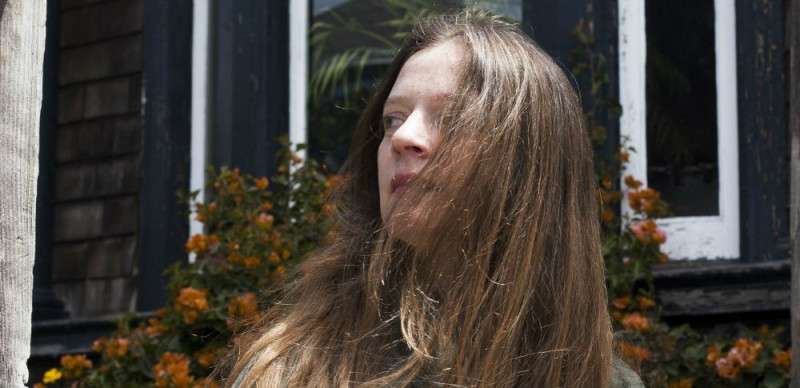Meg Baird
Meg Baird’s last decade would be remarkable by any artist’s standards. She co-founded and recorded three albums with Espers—one of the most distinctively mysterious acts of the century’s first decade. She recorded two solo LPs for Drag City: Dear Companion and Seasons on Earth. She also collaborated with Will Oldham, Kurt Vile, Sharon Van Etten and Steve Gunn, and toured with Bert Jansch.
And while Meg’s last official solo release came in 2011, the days since have been anything but restful. She played drums and recorded with Philadelphia cave punks Watery Love, toured with Michael Chapman, Hurley, Vile,Cass McCombs, Hiss Golden Messenger, and Lambchop, and contributed to compilation LPs honouring Michael Chapman and Shirley Collins.
And after more than a decade as a fixture in Philadelphia’s boiling-over musical scene, Meg moved west to San Francisco. There she joined forces (as drummer and lead vocalist) with members of Comets on Fire and Assemble Head to form the moody and thunderous Heron Oblivion. Amid this flurry of activity she also managed to record this LP—Don’t Weigh Down the Light. Like Meg’s previous LPs (and much of Espers output,) the foundation of Don’t Weigh Down the Light is her lyrical, precise, and propulsive fingerstyle guitar work and a voice that’s alternately soaring, tender, soothing, and deep with mystery—one that more than a few have likened to the folk’s greatest female voices: Sandy Denny, Jaqui McShee, and Shirley Collins.
But where Dear Companion and Seasons on Earth were relatively minimalist affairs, Don’t Weigh Down The Light swims in colours and texture. Electric guitars and organs float and dart around Meg’s intricate picking and voice like ghosts. Distant drums become heartbeats. Piano and electric 12-string guitars shimmer like sun shining on rippling, crystalline seas. Don’t Weigh Down The Light is also a record of its time and place—recorded in a city struggling to stay a haven for dreamers, freaks, and weirdos while a new Gilded Age rolls over the land like a flood.
So… It’s a record that finds Meg casting a cautious sideways glance—questioning sweet talkers and promises of easy illumination. And on the other hand, it’s a loving embrace—and remembrance—of the sunshine-melancholy artistic traditions of California and the City: fog, light, love, hope, and eternal horizons.
For all the colour and moods on Don’t Weigh Down The Light there is nothing too precious or immaculate in the production. It was recorded at Eric Bauer’s Bauer Mansion studio—which has become a kind of bunker of resistance in occupied San Francisco. Six Organs of Admittance, Ty Segall, Mike Donovan, Howlin Rain, Heron Oblivion, and Mikal Cronin all recorded at Bauer Mansion during the period that birthed Don’t Weigh Down The Light.
Bauer’s studio—most famous for the ragged and raging sounds of Ty Segall, Six Organs’ “Hexadic,” White Fence, and Thee Oh Sees—became one of the key creative backdrops for Don’t Weigh Down The Light. And the convergence of Meg’s mood pieces and songs with the Bunker That Sustained Frisco Garage often yielded surprising sonic results. Just listen to the Aftermath-meets-Led Zeppelin I of “Good Directions,” the lazy dream-world of “Even The Walls Don’t Want You To Leave,” or the spacious, solitary, haunting atmospherics of “Stars Unwinding.”
Then there’s the stew of pop-song architecture mated to impressionistic moods that forms the backbone of Don’t Weigh Down The Light’s 11 tunes—forged from Meg’s own deep and natural Anglo-Appalachian instincts and wed in a crucible to the deepest, most longing sounds of Skip Spence and Ben Chasny, Virginia Astley’s pastoral abstractions, Opal’s dusty, paisley West, Gene Clark’s Byrds-era torch ballads, and Popol Vuh and Bo Hanson’s dreamscapes.
Inevitably, some songs reflect the solitude in leaving and arriving anew. But there’s also a sense of strength in friendship and home. The lyrics are full of affection, care and guidance. And in spite of that wry, wary, sideward glance at power and promises, they are a plea to live, to thrive, and to stick around. A reminder that we need the dreamers—even if it’s wake-up time.

